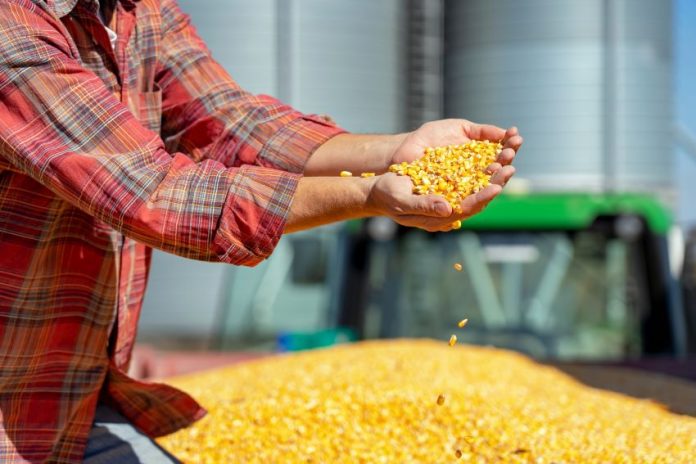Mexico displaced China as the No. 1 recipient of U.S. food and agricultural exports as sales climbed 7% during the 2024 fiscal year, reported the Food and Environmental Reporting Network (FERN), citing U.S. Census Bureau data.
Together, Mexico (US $30 billion) and Canada (US $29 billion) accounted for one-third of U.S. food and ag exports of $173 billion for the year. They are forecast to repeat as the top two markets in fiscal 2025, with China (US $ 25.7 billion) again in third place, FERN reported.
Mexico’s imports of U.S. food and ag products this year were $2 billion more than in fiscal year 2023. Leading the way were purchases of corn totaling 24.5 million metric tons — a new record that accounted for 40% of all U.S. corn exports for the year.
Mexico is the largest consumer of U.S. corn. According to the latest “Grain: World Markets and Trade” report by the U.S. Department of Agriculture (USDA), U.S. corn volume to Mexico in fiscal year 2024 “is the largest single-year trade volume to any destination in history and accounted for just over 40% of total U.S. corn exports.”
However, both U.S. growers and Mexican buyers have concerns about the future of corn trade. While U.S. corn producers await a ruling on a U.S. challenge to Mexico’s ban on genetically modified (GM) white corn, they are also bracing for the prospect of a fresh U.S.-China trade war under incoming U.S. President Donald Trump, according to the news agency Reuters.
In 2023, Mexico banned GM corn for human consumption, including in tortillas and dough. The ban was intended to eliminate glyphosate from Mexico’s food supply chain, which the Mexican government views as harmful to people.

The U.S. responded by threatening trade retaliation before initiating a dispute settlement panel under the United States-Mexico-Canada Agreement (USMCA). The panel is scheduled to release its preliminary and final reports in the coming weeks.
In February 2024, Mexico relaxed some restrictions and delayed the introduction of the ban until 2025. Mexico has argued that they have not actually implemented a ban, but rather they are applying an end-use limitation on corn in order to protect the diversity of its native maize.
Mexico does not appear ready to back down should the USMCA panel rule against it, even though the U.S. supplied almost all of Mexico’s imported corn.
Since taking office in October, President Claudia Sheinbaum has voiced support for food sovereignty, backing a plan that includes larger domestic production of non-GM white corn and beans. “It’s about producing what we eat,” she said, according to FERN.
Meanwhile, U.S. agricultural producers are still reeling from the 25% tariffs China slapped on U.S. farm imports from soybeans to sorghum during the 2018 trade war in retaliation against duties imposed by the first Trump administration.
With reports from Food and Environment Reporting Network and Reuters
